EconFrame is a photo competition designed for undergraduate students to submit a photo that captures an economic concept, event or news. Along with an original photo, participants must come up with a title and a 150-word abstract explaining how the photo relates to economics. The submissions will be judged on their content and visual quality, with the top submissions being awarded during the Explore Econ Conference 2021. This project focuses on making a connection between economics and the real world. We’re living in an age of image so why not take advantage of it to help understand economics?
EconFrame Winners 2020/2021
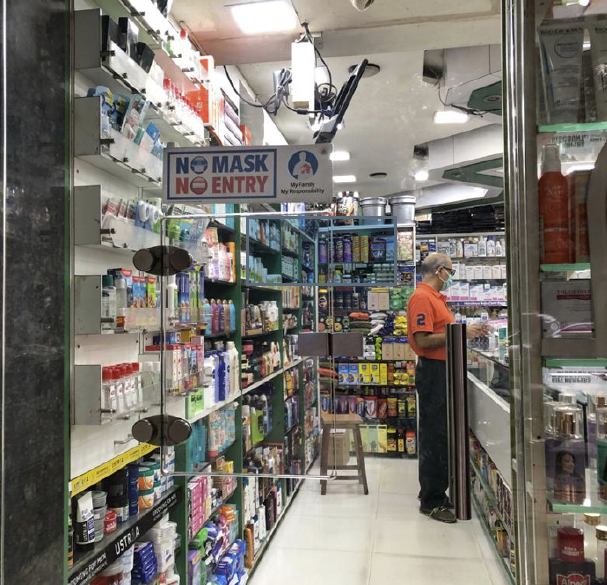
A Window of Opportunity
by Ananya Ashta
I went to the chemist near my house and noticed a new addition to the glass door. Underneath the government mandated sign reminding the people to wear their masks was a small window. This “window of opportunity” was added at a time when the rules in place to tackle the coronavirus pandemic included a limit on 4 people in a shop the size of the chemist. Seeing the nature of the emergency, such a limit would be a hindrance and would result in a long (and possibly dangerous) queue outside the premises. The installation of this window allowed the chemist to gain innovation rents, even more so since there are at least two other chemist shops close by. Whether or not this practice will be adopted by other shops is to be seen, especially due to the practice of home deliveries of medicines. For now, this decision made in response to the current demand has yielded its results.
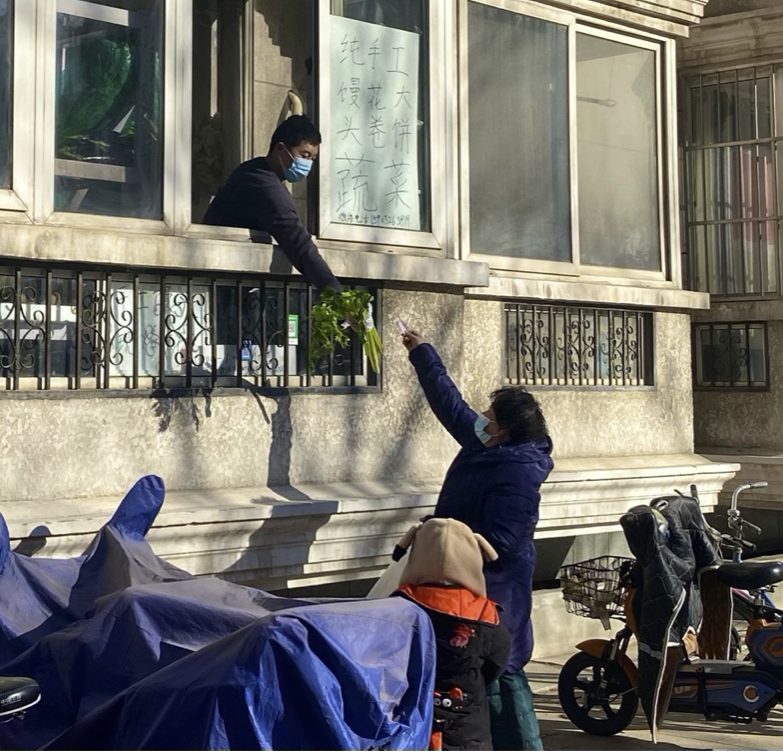
Pareto Efficiency under the Pandemic
by Xinyao Zou
During the pandemic in 2021, the government of Hebei province announced that few communities were shut down temporarily in order for medical workers to conduct free COVID tests for residents. Therefore, residents were not allowed to leave their community for groceries. People could contact the supermarkets outside through smartphones. However, supermarkets only deliver items when the final purchase exceeds 30RMB. One day, surprisingly, I found that the owner of a superette was selling food without a reserve price and unlimited times through his apartment’s window in community. As is shown in the image, a customer is paying for her purchase. The piece of paper pasted on the window wrote ‘Handmade steamed buns, pastries and vegetables’ followed with the payment method. It reminds me of Pareto efficiency: there is no alternative technically feasible allocation in which community citizens and/or the superette’s owner can be better off, and no body worse off.
EconFrame Winners 2019/20
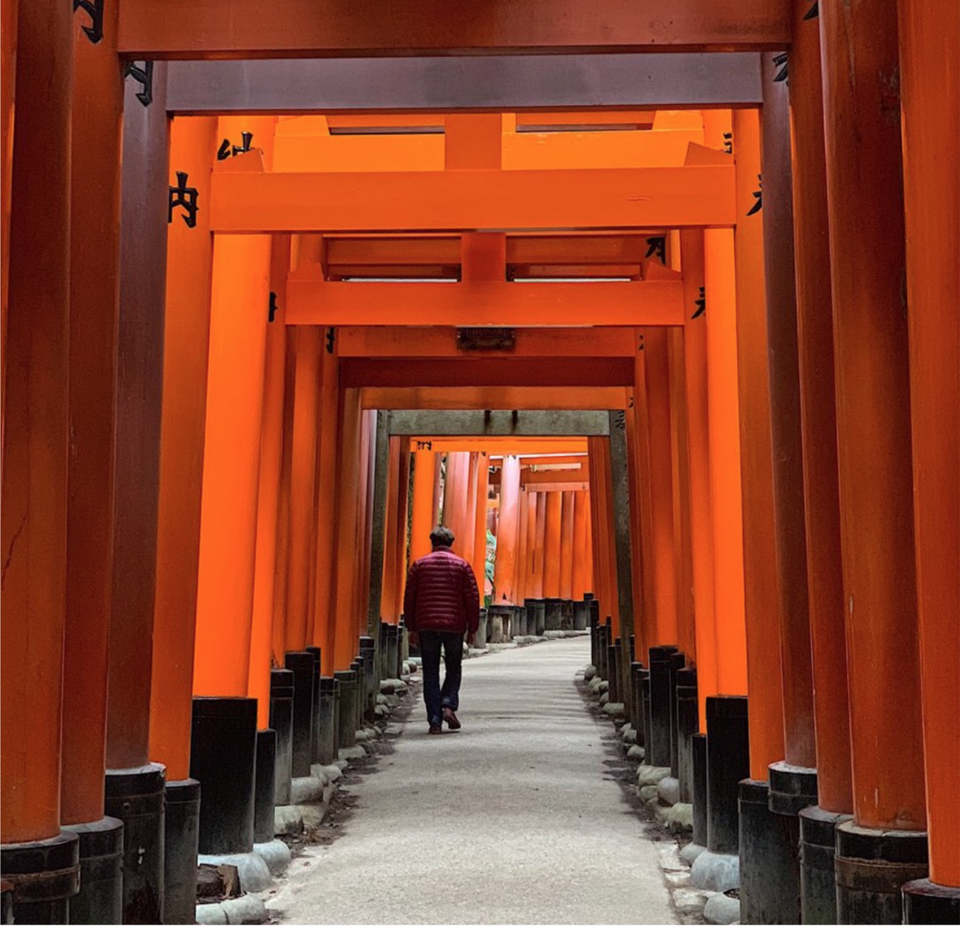
PER ASPERA AD ASTRA
by Frank Zeng
When I was climbing up a mountain to reach a Shintoism temple in Kyoto, I took this photo and came up with a question: Why do they build a temple on a mountain? Clearly, building a temple on the top of a mountain will cost far more resources than building up the same temple at the foot of a mountain. One plausible explanation could be people (monks) who built this temple were thinking about picking up the most devout believers by screening. For each believer, the degree of their belief is their own private information which monks can’t observe. However, monks can offer all believers different choices and observer their behaviours. Only those with very high level of devoutness will choose to spend time to climb up a mountain in order to worship their god while for those with low level of devoutness will choose not to do so.
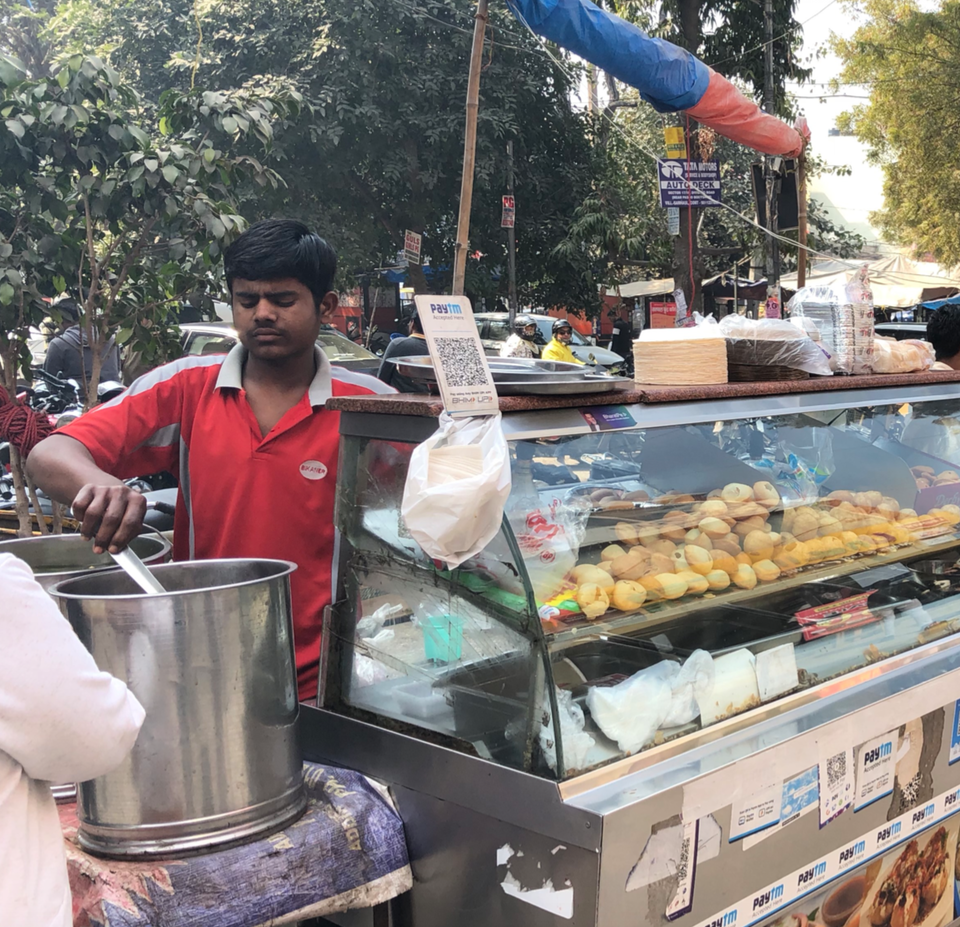
UNINTENDED CONSEQUENCES
by Souveer Aggarwal
During a recent trip to India, I was surprised to see that the street food stall at the local market was accepting epayments though a service called Paytm. You can see the QR code in the photo above and the advertisement of the service on the stickers along the stall front. In the moment, I realised that this was a positive unintended consequence of the demonetisation policy of 2016. The government decided to invalidate over 80% of bank notes in circulation in an attempt to flush out corruption and illegal wealth. The overnight policy resulted in panic and confusion, with long queues to exchange old notes. Many small businesses suffered. However, this policy has led to a large-scale adoption of e-payments across India, which have not otherwise happened. Many small merchants like the stall in the photo have been incentivised, by the demonetisation, to digitize.
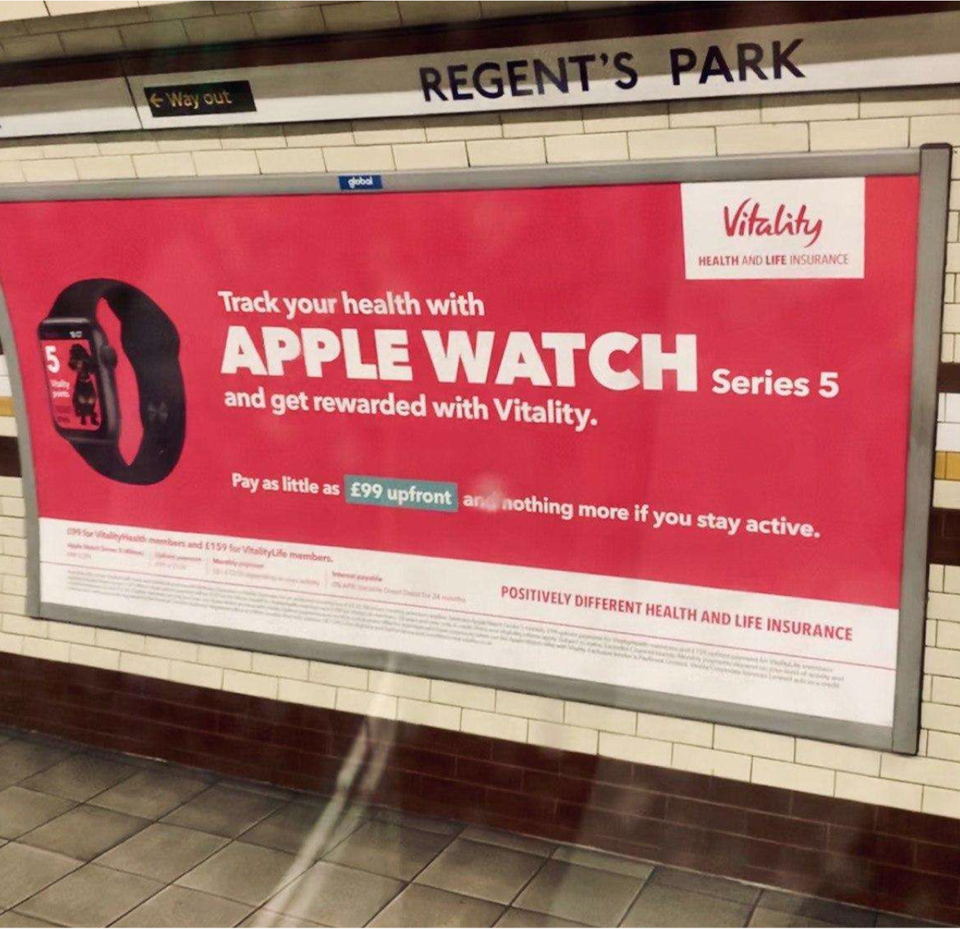
SIGNALLING
by Tianru Mu
The photo shows an advertisement by Vitality, a health insurance company, promoting its deal of Apple Watch. The deal has two conditions. First, the consumer must have an insurance (or investment product) from Vitality. Second, the saving of the deal depends on the consumer’s level of physical activity, which is monitored by the watch. I was interested in the deal, so I took a picture of it on the tube, as reflected by the dirty window of the train. Later I realised that the deal is a clever way to signal consumers’ health conditions to insurers, since those who choose the deal tend to be active and Vitality can monitor their real-time level of activity, thus alleviating adverse selection. I hope to convey, through this photo, that sophisticated solutions to economic problems that are hidden in our daily life.
 Close
Close

